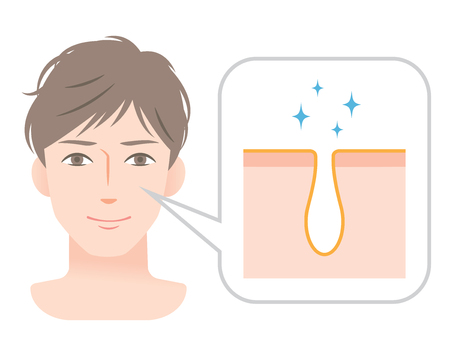Understanding Acne-Prone Skin in the UK
When it comes to choosing the right skincare products for acne-prone skin, understanding the unique context of living in the UK is essential. The British climate, with its characteristic dampness, frequent rain, and fluctuating temperatures, can have a noticeable impact on how our skin behaves. Many people find that their skin is oilier during humid spells and drier when cold winds pick up—a combination that can aggravate breakouts or lead to confusing skin conditions. Additionally, hard water in many parts of the UK can contribute to clogged pores and irritation, making it even trickier to keep acne at bay.
Acne-prone skin typically presents as skin that produces excess sebum, leading to blocked pores and inflammation. In the UK, this can be further complicated by environmental factors like pollution in urban centres or seasonal changes that disrupt your usual skincare routine. Common causes of breakouts among Britons include hormonal fluctuations (especially around exam time or work stress), dietary habits (think high tea with sugary treats), and even the use of heavy, occlusive moisturisers in an attempt to combat cold weather dryness.
Taking a practical approach means recognising these local challenges and focusing on products formulated specifically for sensitive, blemish-prone skin. Being aware of ingredient lists—such as avoiding comedogenic oils—and understanding how external factors influence your complexion are key first steps before navigating the crowded shelves of the British skincare market.
Key Ingredients to Look For and Avoid
An engineering approach to skincare means breaking things down into their fundamental components. For those with acne-prone skin in the UK, it’s vital to understand which ingredients are scientifically proven to be effective, yet gentle enough for regular use, given the often unpredictable British weather and environmental factors. Here’s a closer look at what to seek out—and what to sidestep—when scanning product labels.
Effective Ingredients for Acne-Prone Skin
| Ingredient | Function | Why It Works for UK Consumers |
|---|---|---|
| Salicylic Acid | Exfoliates pores, reduces inflammation | Suitable for humid or damp climates; helps combat pollution-related breakouts |
| Niacinamide (Vitamin B3) | Regulates sebum production, soothes redness | Gentle on sensitive British skin; addresses both oiliness and irritation from cold winds |
| Benzoyl Peroxide | Kills acne-causing bacteria | Effective in low concentrations (2.5–5%) for UK regulations; quick spot treatment |
| Zinc PCA | Reduces oiliness and bacterial growth | Mild and well-tolerated, especially during seasonal changes common in the UK |
| Aloe Vera Extract | Soothes and hydrates irritated skin | Counters dryness caused by central heating or cold weather; suitable for daily use |
Ingredients Best Avoided by Acne-Prone Individuals
| Ingredient to Avoid | Reason for Concern | UK Market Considerations |
|---|---|---|
| Sodium Lauryl Sulfate (SLS) | Irritating surfactant, strips natural oils, can worsen sensitivity and breakouts | Common in budget cleansers; check labels carefully as it’s widely used in the UK market |
| Heavy Mineral Oils & Lanolin | Pore-clogging, may trigger comedones (blocked pores) | Often present in winter moisturisers; look for “non-comedogenic” claims instead |
| Alcohol Denat. | Can cause excessive drying and irritation, especially with frequent use | British winters exacerbate dryness; avoid alcohol-based toners and gels |
| Synthetic Fragrances & Dyes | Potential allergens, may trigger flare-ups or contact dermatitis | Scented products remain popular but can be misleadingly labelled as “fresh” or “natural” |
| Coconut Oil (in leave-on products) | Highly comedogenic despite its natural reputation | Avoid in facial moisturisers and serums aimed at oily/acne-prone skin types |
Notes on Patch Testing and Local Climate Impact
The variable climate in Britain—ranging from muggy city air to brisk coastal breezes—means that patch testing is essential before introducing any new ingredient. Even beneficial actives like salicylic acid can behave differently depending on humidity levels or indoor heating. As an engineering-minded consumer, always introduce one new product at a time and monitor for 48 hours before wider application.
The Bottom Line: Ingredient Transparency Matters
Selecting skincare products in the UK is not just about finding what works—it’s also about understanding what you’re applying. Brands that provide clear ingredient lists (in compliance with EU/UK cosmetic regulations) give you the control needed to engineer a routine that’s truly tailored to your skin’s needs amidst uniquely British conditions.

3. Navigating British Skincare Brands and Regulations
When it comes to selecting skincare for acne-prone skin in the UK, understanding the landscape of local brands and regulatory standards is essential. The British market offers a wealth of options, from high-street staples to emerging indie labels, each with their own approach to acne care. While names like Simple, Boots own-brand lines, and The Ordinary are widely available and recognised for their straightforward ingredients, there are also boutique British brands such as Pai and REN that emphasise gentle formulations tailored for sensitive or blemish-prone skin.
British skincare products must adhere to rigorous safety standards set by authorities like the Medicines and Healthcare products Regulatory Agency (MHRA) and comply with the UK Cosmetic Regulation (which closely mirrors previous EU standards). This means that all cosmetics sold locally have undergone safety assessments and ingredient reviews. Look for clear labelling with batch numbers, expiry dates, and contact details of the responsible person or company — these are strong indicators of compliance.
When choosing trustworthy products, prioritise those that display certifications or endorsements from reputable bodies such as the British Skin Foundation or Allergy UK. Purchasing from established retailers or pharmacies—such as Boots, Superdrug, or even your local chemist—can further ensure product authenticity and traceability. It’s also wise to read customer reviews on UK-based platforms for honest feedback about a product’s effectiveness on acne-prone skin. Ultimately, informed choices supported by local regulations and brand transparency will help you build a safe, effective skincare routine tailored to your needs.
4. Tailoring Your Skincare Routine to Local Conditions
When selecting skincare products for acne-prone skin in the UK, it’s crucial to consider Britain’s unique environmental factors. The UK’s weather is famously unpredictable—characterised by dampness, frequent rain, and fluctuating temperatures—which can impact both your skin’s behaviour and how skincare products perform.
Understanding the British Climate and Its Effects on Skin
The combination of high humidity, persistent drizzle, and urban pollution (especially in cities like London, Manchester, or Birmingham) can aggravate acne by clogging pores and increasing oil production. It’s essential to adapt your routine accordingly:
| Weather Condition | Potential Skin Impact | Recommended Adaptation |
|---|---|---|
| Damp & Humid | Increased oiliness, potential for clogged pores | Lightweight, non-comedogenic moisturisers; gentle exfoliation twice weekly |
| Polluted Urban Air | Skin irritation, dullness, acne flare-ups | Antioxidant serums (e.g., vitamin C), double cleansing in the evening |
| Cold & Windy | Sensitised or dry patches alongside breakouts | Ceramide-rich creams at night; barrier-repairing ingredients |
Daily Routine Tips for the British Lifestyle
- Cleansing: Consider a gentle foaming cleanser in the morning to remove overnight oil build-up, and a richer balm or oil cleanser in the evening to dissolve pollution particles without stripping your skin.
- Moisturising: Even if you’re prone to acne, don’t skip moisturiser—opt for lightweight gels during humid months and richer creams when the temperature drops.
- Sunscreen: While the UK isn’t known for its sunshine, daily SPF is still necessary due to UVA exposure year-round. Choose a broad-spectrum SPF that won’t clog pores.
Extra Advice: Coping with Commutes and Office Environments
- If you commute by train or tube, carry blotting papers or a mattifying powder to manage midday shine caused by crowded, stuffy conditions.
- Office heating or air conditioning can dehydrate skin; use a hydrating mist or reapply a light moisturiser as needed.
A Practical Reminder
No single routine fits all. The key is flexibility—adjust your product selection seasonally and in response to daily weather changes. By staying attuned to Britain’s climate and making small tweaks, you can better support your acne-prone skin throughout the year.
5. Common Pitfalls and How to Avoid Them
When navigating the British skincare market for acne-prone skin, it’s easy to fall into a few classic traps that can undermine your efforts. Here’s a candid overview of frequent missteps and practical guidance to help you sidestep them.
Overcomplicating Your Routine
One of the most common mistakes is layering too many products in hopes of faster results. The UK market is saturated with serums, spot treatments, and masks—tempting, yes, but more isn’t always better. Overloading your skin can disrupt its natural balance, leading to irritation or even more breakouts. Stick to a simple, consistent routine: a gentle cleanser, a suitable moisturiser, and targeted treatment as needed. Remember, less truly can be more when it comes to sensitive, breakout-prone skin.
Chasing Fads and Trends
British shelves are often swept by the latest trends—whether it’s a TikTok-famous exfoliant or a celebrity-endorsed toner. While some innovations have merit, many fads lack evidence or aren’t formulated for acne-prone complexions. Before investing in trending products, check if they’re non-comedogenic and supported by credible research or NHS guidance. It’s wise to consult pharmacists or dermatologists rather than relying solely on influencer endorsements.
Product Overuse and Mixing Actives
Another pitfall is being heavy-handed with active ingredients like acids or retinoids, thinking more will speed up results. In reality, overuse can compromise your skin barrier—a concern especially relevant during Britain’s colder months when skin is already vulnerable. Always introduce new actives gradually and avoid mixing strong ingredients unless directed by a professional.
Practical Tips to Stay on Track
- Patch test new products before full application.
- Avoid switching routines too frequently; give products time to work (usually 6-8 weeks).
- Be wary of “miracle cures” and bold claims—if it sounds too good to be true, it probably is.
A Thoughtful Approach Pays Off
Ultimately, choosing the right skincare in the UK means resisting the urge to overdo it. By staying informed and patient—and not getting swept up in every new craze—you’ll build a routine that genuinely supports your acne-prone skin.
6. Where to Seek Reliable Advice and Support
When navigating the British skincare market for acne-prone skin, it’s crucial to seek reliable advice and support tailored to your needs. Consulting professionals is a wise first step. GPs (General Practitioners) in the UK are well-versed in dermatological concerns and can offer medical guidance or refer you to a specialist if needed. For non-prescription queries, your local pharmacist is an accessible and knowledgeable resource. Many pharmacists across Britain receive specific training in skincare and can recommend suitable over-the-counter products or ingredients for your skin type.
Additionally, the NHS (National Health Service) provides a wealth of trustworthy information online through their official website. Their resources cover everything from understanding acne triggers to tips on choosing effective treatments available within the UK market. If you’re considering new products or struggling with persistent acne, booking an appointment with your GP or speaking directly with your pharmacist ensures advice is relevant to British regulations and product availability.
Remember, while online forums and beauty blogs can be useful for personal experiences, always verify any recommendations with a certified professional or NHS guidance. This approach helps ensure that the advice you follow is safe, evidence-based, and specifically adapted to the British context—helping you make informed decisions on your journey towards healthier skin.


